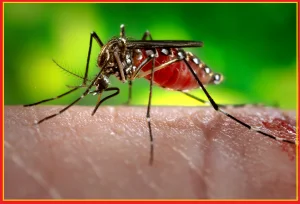🦠 WHO Declares Dengue as International Health Threat in 2025
Table of Contents
ToggleGeneva, July 11, 2025 — In a significant development, the World Health Organization (WHO) has officially declared Dengue as International Health Threat in 2025, following a massive surge in infections across several Asian countries.
The alarming rise in cases, particularly in India, Sri Lanka, and Thailand, has triggered global concern and prompted urgent calls for regional coordination, public health interventions, and fast-track vaccine deployment.
🌏 Dengue Cases Reach Critical Levels in Asia
As of early July 2025, the WHO estimates over 6 million cases of Dengue have been reported globally this year — with more than 70% of them originating from South and Southeast Asia.
India has recorded over 2.3 million infections, with hotspots in Delhi, Mumbai, Kerala, and West Bengal.
Sri Lanka is battling its worst outbreak in a decade, with over 600,000 confirmed cases.
Thailand has reported 400,000+ cases, forcing hospitals to operate beyond capacity.
This year’s Dengue wave is being linked to climate change, urban crowding, and stagnant water accumulation during prolonged monsoon seasons.
🚨 Why Dengue as International Health Threat in 2025?
The WHO’s emergency declaration places Dengue on the same level of global concern as past threats like COVID-19, Zika, and Ebola.
According to Dr. Maria Van Kerkhove, WHO’s infectious diseases lead:
“The current spread of Dengue is faster and wider than we’ve ever recorded. Immediate regional and global coordination is critical.”
Dengue as International Health Threat in 2025 now represents more than a medical concern — it’s a global call to action.
🧬 Understanding Dengue: A Rapidly Spreading Mosquito-Borne Disease
Dengue is transmitted primarily by the Aedes aegypti mosquito and can cause high fever, severe joint pain, rashes, and internal bleeding in severe cases. There is no specific antiviral treatment, although supportive care helps reduce fatality rates.
Key Concerns:
Limited hospital infrastructure in rural areas
Increased resistance to mosquito repellents
Misdiagnosis due to symptom overlap with other viral fevers
💉 Vaccination & Prevention Efforts Underway
Governments and global health bodies are ramping up vaccination campaigns using the Dengvaxia and Qdenga vaccines, with emergency approvals being considered for new regional versions.
In India, the Health Ministry has launched:
Mass fogging drives in urban areas
Public awareness campaigns via mobile and digital media
Rapid response units in high-incidence states
🌐 International Aid & Response
Countries like Japan, UAE, and the USA have pledged financial and logistical aid to help combat the outbreak. The UNICEF and Red Cross are also mobilizing mosquito nets, testing kits, and portable clinics.

🧩 Conclusion: Containing the Dengue as International Health Threat in 2025
As the world battles yet another public health crisis, it’s clear that Dengue is no longer a seasonal tropical illness — it’s an evolving international health emergency. Governments, healthcare workers, and citizens must act swiftly to contain the Dengue as International Health Threat in 2025 before it spirals further out of control.
📌 Frequently Asked Questions (FAQ)
❓ Why has the WHO declared Dengue as International Health Threat in 2025?
The World Health Organization (WHO) made this declaration due to an unprecedented surge in Dengue cases globally, especially in India, Sri Lanka, and Thailand. Over 6 million infections have been reported this year, making Dengue one of the most widespread health risks of 2025.
❓ Which countries are most affected by the Dengue outbreak?
The Dengue as international health threat in 2025 is primarily affecting:
India (2.3 million+ cases)
Sri Lanka (600,000+ cases)
Thailand (400,000+ cases)
Other Southeast Asian and Latin American nations are also reporting sharp increases in cases.
❓ What is Dengue and how does it spread?
Dengue is a mosquito-borne viral infection caused by the Aedes aegypti mosquito. It spreads through mosquito bites, especially during humid and rainy seasons. It is not transmitted from person to person.
❓ What are the common symptoms of Dengue?
Typical symptoms include:
High fever
Severe headaches
Joint and muscle pain
Skin rash
Nausea and vomiting
In some cases, internal bleeding and Dengue Hemorrhagic Fever (DHF)
❓ Is there a vaccine or cure for Dengue?
There is no specific antiviral cure for Dengue. However, vaccines like Dengvaxia and Qdenga are being used in some countries. Treatment is mainly supportive — focusing on hydration, rest, and symptom relief.
❓ What steps are being taken by countries like India to control the outbreak?
Governments are responding by:
Launching fogging and mosquito control drives
Distributing mosquito nets and repellents
Setting up rapid diagnostic centers
Spreading awareness campaigns via digital and local media
Scaling up emergency vaccine access in critical areas
❓ How can individuals protect themselves from Dengue?
To prevent Dengue infection:
Avoid mosquito bites by using repellents and nets
Wear long-sleeved clothing
Remove stagnant water where mosquitoes breed
Use window screens and indoor insecticides
Stay informed during outbreak alerts
❓ Where can I get verified updates on Dengue in 2025?
You can follow real-time updates on:
Official portals like WHO.int
Ministry of Health websites of your country
Local health departments and hospitals




